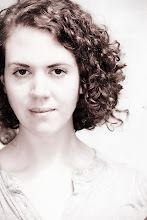I've often heard writers discussing new work and saying 'i saw that coming' or 'i didn't see that coming' in reference to narrative. They attribute considerable significance to this element of surprise in the story, in fact it seems to make or break their enjoyment of the work.
Until now this always baffled me a bit.
I have an 'all round' experience of performing, acting, directing, devising, management and technical support as well as writing (in theatre and some film). I can relate to and enjoy so many different elements of a production that the predictability or unpredictability of the story is not so imperative to my enjoyment. If the storyline is not very dynamic I tend to find there's a different emphasis, it will be visual or physical or technical or experimental, and i will enjoy these features.
However, now I have specialised i must assume a writer's perspective, and it has been brought to my attention that a greater element of surprise is required in my own writing.
So, i'm keeping a beady eye out for and having a real think about surprising work.
Last night I saw 'Dead of Night' by Imprint Theatre Company ; a ventriloquist dummy (actually an actress performing the dummy) who appeared from a chest that had been located on the stage for the duration of the performance was a delicious surprise. The actress had been inside the chest for over an hour before she emerged. The fact that the dummy was eerily convincing was very engaging, and the fact that part way through the story the dummy actually began to speak for itself was yet another fresh, surprising offering.
Another great example can be found in Laurence Timm's 'Chinnery' the first five chapters of which can be found here . Have a read and you'll see what happens in chapter five. What i particularly like about this element of surprise is that suddenly we're presented with an entirely new mode of exposition. We're also introduced to lots of new things in this chapter in a wonderfully economic way, a new 'underground' environment, an organisation behind the scenes, a new character (the other voice in the transcript) and we see the story from another perspective. All very stimulating and exciting and unexpected.
I'm going to have to dig deeper to search out more subtle story surprises, the ones that the writer's say they didn't see coming. A story that springs to mind is Jim Cartwright's 'Two' where the loss of the Publican and his Wife's Son in a car accident is revealed, the juxtaposition of the horror of this incident set against the colourful backdrop of pub life. Could i see that coming though? It's certainly clear that something is coming, there are allusions leading up to the climax.
Something for me to continue thinking about and exploring.






2 comments:
I suppose the important point isn't that there is a surprise, more that the tension is handled differently on stage or in print over film and TV.
In film and TV, you assume people will be switching between various channels, and thus can't leave them with too much to guess about. Take Lost or FlashForward; both explain everything painstakingly, apart from the obvious points of departure from understanding, which couldn't be more obvious if they had a red flag hanging out of their trousers.
Then again, in theatre and print media, you assume that the audience won't leave halfway through, and thus can tease them with a reveal that can come over an hour into a play or 100 pages into a book. The medium, with a captive audience, lends itself far more to such trickery.
Try this for fun: watch any episode of some TV drama, or any film, and pick a scene, any scene. Imagine the film/episode started at that point, and imagine which scenes you'd show when to extrapolate the plot from there. It instantly reminds more of a play than anything else!
Thanks for your comment. I can see how that exercise could produce those results. I'll try it some time.
I haven't ever tried to write for TV. I will keep my eye out for what you have described.
Post a Comment